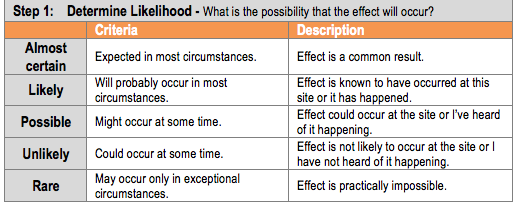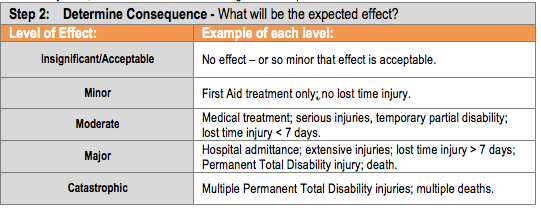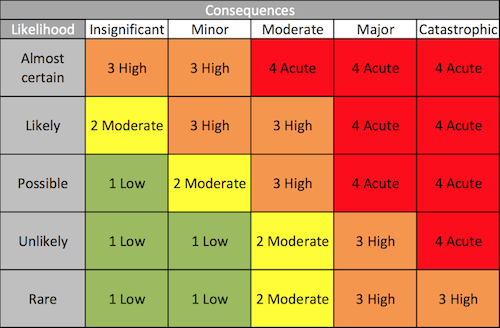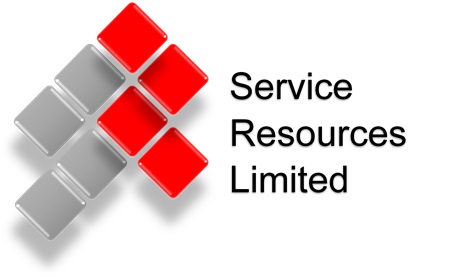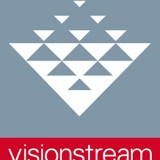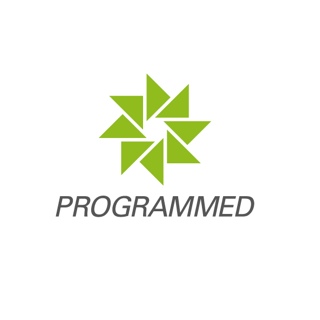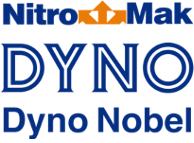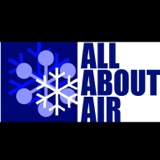Information
-
JSA No.
-
Audit Title
-
Client / Site
-
Conducted on
-
Prepared by WIC (Worker In Charge)
-
Location
Part 1
-
Job Safety Analysis (JSA) is to be completed upon arrival on site with the purpose of identifying any site-specific hazards present on the day.
Site Assessment
Primary Contractor or Site Owner details
-
Business Name
-
-
Phone:
-
Address:
- 12 Valley Street North Mackay
- 1/2 Myer Lasky Drive Cannonvale
- 1/41 Charters Towers RoadHermit Park
- 3/471 Tufnell Road Banyo
Emergency Management
-
Emergency Contact Numbers
-
Evacuation Point / Assembly Area
-
First Aid Kit Location/s
-
EMERGENCY
• In an emergency
↓
• evacuate all persons on site to designated assembly area
↓
• Lock down the site if possible
↓
• Contact Emergency Services
Part 2
-
Stop and Think Through the Task
-
Do I clearly understand what is required?
-
Am I trained to do the work and familiar with the equipment/task?
-
Are the tools and equipment in a safe condition?
-
Do I have approved documentation for the task?
-
Have I informed others who may be affected by my work?
-
Do I have the correct PPE/RPE for the task (identified in the risk assessment/method statement)?
-
Identify and Assess the Hazards<br>Provide corrective actions for hazards
Identify and Assess the Hazards
-
Have you identified any additional hazards?
-
What is the Hazards?
-
Can the the Hazard be avoided?
-
What can be done to reduce the risk of the Hazard?
-
What is the risk level after reducing the Hazard?
Control and monitor
-
Are all hazards identified controlled or removed?
Part 3
Job Description and Work Procedures
-
List the main tasks that will be performed on this site.
Task
-
Job Steps
-
List of SWMS in use for this job (if applicable):
- 1.1 Solar Installation
- 2.1 Energised Electrical
- 2.2 Heights
- 2.3 Overhead Power
- 2.4 Confined Space
- 2.5 On or Near Roads
- 2.6 Asbestos
- 2.7 Plant
-
Have all relevant workers read the SWMS?
-
Have all workers been trained in the SWMS?
COVID-19 Checklist
-
Have you completed the pre checks for the client to ensure there is no at risk person on premise?
-
Are all team members free of symptoms of COVID-19 in line with updated symptom guidelines
-
Have all team members washed hands prior to attending site in line with COVID-19 guidelines
-
Has the client been notified of social distancing practices and non contact installation if deemed required
-
Are you comfortable with the site and locations of works will be distanced in line with COVID-19 guidelines
Working At Heights
-
Work above 3mtrs
-
Fall Protection & SWMS required please adhere to SWMS 1.1 Solar Panel Installation. Particular attention to steps 11-13
-
Work 2mtrs - 3mtrs
-
SWMS required please adhere to SWMS 1.1 Solar Panel Installation. Particular attention to steps 11-13
-
Work Below 2 mtrs
-
SWMS not required however still adhere to SWMS 1.1 Solar Panel Installation
Site Permits or Register Documentation required
-
-
Work/Entry Permit/s completed and signed
-
Chemical Register / manifest / Safety data sheets on site
-
Does the property have overhead mains?
-
Will they be affected by works?
-
Energised
-
Do not work without appropriate measures in place
-
De-Energised
-
Test as off and confirmations prior to proceeding
-
Does the property have underground mains?
-
Will they be affected by works?
-
Dial Before You Dig plan
-
Electrical Services
-
Gas Services
-
Water Services
-
Communications
-
Does the work involve any of the following High Risk Construction Work? (Tick if applicable)
Work involving: Explosives, Demolition, Structural alterations
-
Work involving: Explosives, Demolition, Structural alterations
-
Use of explosives
-
Demolition
-
Temporary supports for structural alteration
Work adjacent to, near, on / in:
-
-
Confined spaces
-
A tunnel, shaft or trench > 1.5m
-
Pressurized gas, chemical, fuel or refrigerant lines
-
Roads, railways in use by traffic
-
Live electricity
-
Moving powered mobile plant
-
Where there is risk of drowning, Asbestos, Artificial temp extreme
-
-
Drowning
-
Disturbing asbestos
-
Artificial extremes of temperature
-
Contaminated or flammable atmosphere
-
-
Add Hazard
Key Site Specific Safety Hazards
-
List all Hazards identified during the JSA.
Hazard
-
Risk Level
-
Controls in place.
-
Residual Risk Level
-
Is it safe for work to proceed?
-
Have all risks been reduced to the lowest acceptable level?
-
DO NOT COMMENCE WORK, contact your supervisor.
-
Do any workers require additional supervision?
-
If YES, who are they and who will provide the supervision?
-
Re-assess Any new hazards identified during the work are to be assessed and controls put in place
-
Person Responsible:
-
Monitoring On-going monitoring of hazards and risks is required for the duration of the work.
-
Person Responsible:
JSA participants confirmation
-
I have read the above JSA and I understand its contents. I confirm that I have the skills and training, including relevant certification to conduct the tasks I have been allocated to complete. I agree to
comply with safety requirements within this JSA including identifying and monitoring hazards and adhering to risk control measures, relevant SWMS and permit requirements. -
Participants/ workers names.
Worker
-
Name and Signature
-
Date
Part 4
RISK ASSESSMENT MATRIX
-
HB 436:2004 Risk Management Guidelines Tables 6.3 – 6.8 reproduced with permission from SAI Global under licence 1210-c062. Standards may be purchased at http://www.saiglobal.com
References: Safe Work Australia (2011) - Code of Practice: How to Manage Work Health and Safety Risks, AS/NZS 31000 -2009 Risk Management Principles and Guidelines. -
-
-
-
- 4A: Acute DO NOT PROCEED > requires immediate attention. Introduce further high-level controls to lower the risk level.
- 3H: High > Review before commencing work. Introduce new controls and/or maintain high-level controls to lower the risk level. Monitor frequently to ensure control measures are working.
- 2M: Moderate > Maintain control measures. Proceed with work. Monitor and review regularly, and if any equipment/people/materials/work processes or procedures change.
- 1L: Low > Record and monitor. Proceed with work. Review regularly, and if any equipment/people/materials/work processes or procedures change.
Hierarchy of Risk Controls
-
• Elimination - Risk will be eliminated where possible
↓
• Substitution Isolation Engineering - Where risk remains, one/combination of controls will be used
↓
• Administrative - Where risk remains, administrative controls will be used
↓
• Personal Protective Equipment (PPE) - Where risk still remains, it will be reduced as far as reasonably practicable with use of PPE.






